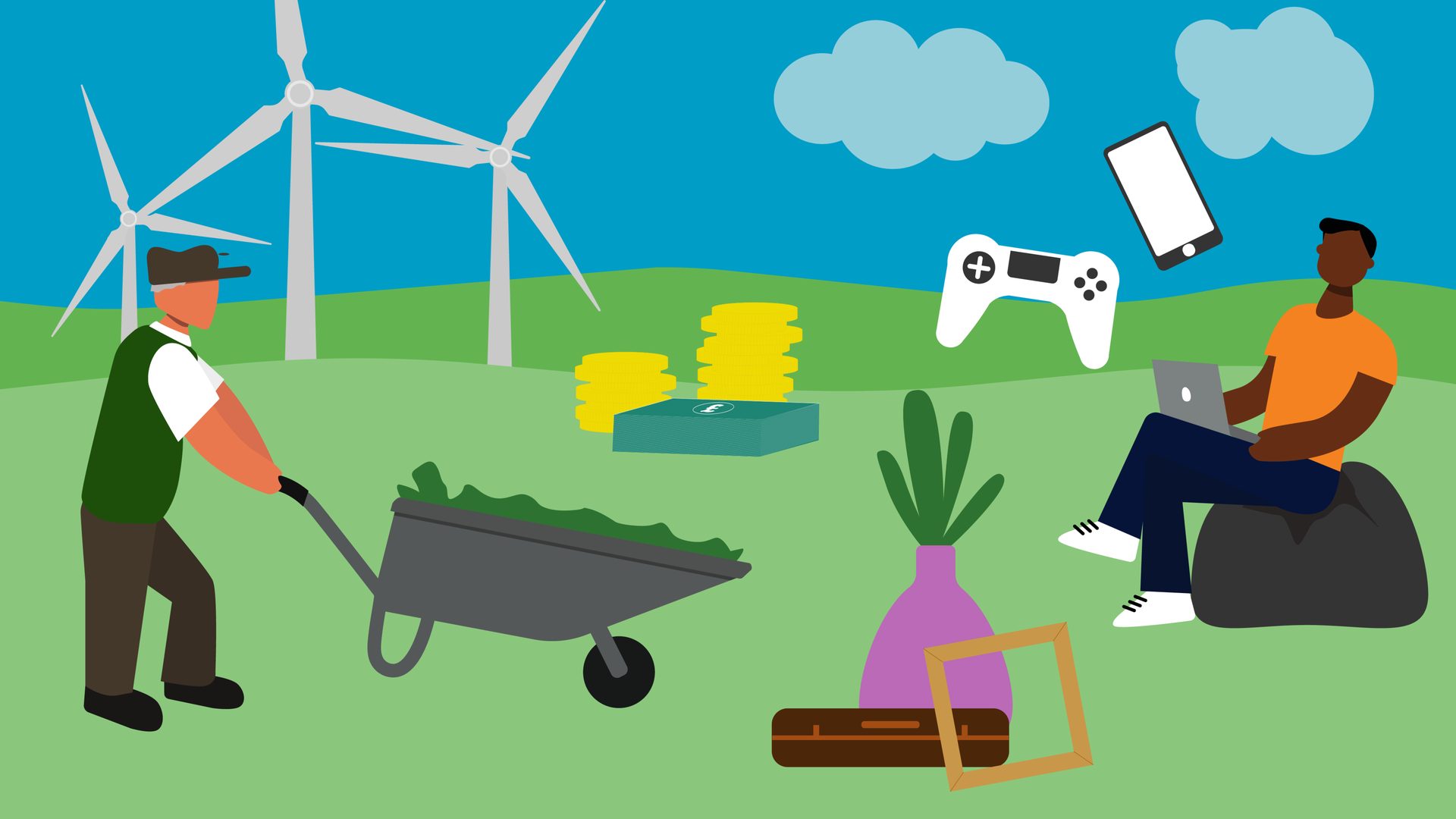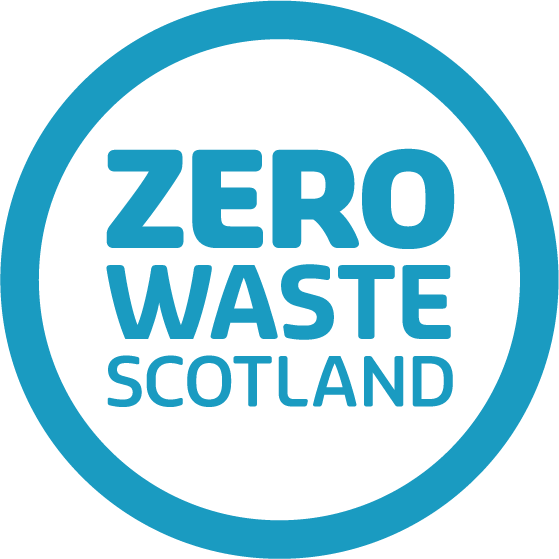The tracker shows us:
- High levels of concern for the climate crisis, regardless of cost of living and other pressures.
- People want to see the government do more, but they also recognise they have their own part to play, which although small, is still significant.
- Most people now have an established and embedded ‘repertoire’ of circular behaviours, but it is small – mostly limited to recycling, being more aware of food waste and taking reusable bags when shopping. We need to expand this repertoire further, with reuse behaviours being the area with the biggest potential.
- The survey indicated the public are ready to hear about the circular economy. Despite awareness of the term being low, the study showed an encouraging level of understanding of the general principles, and that the timing is ripe to make the concept mainstream.
This is the first set of results from an annual tracker study to track shifts in attitudes, behaviours and barriers in all lifestyle areas relating to a circular economy – from recycling, to reuse, repair, sharing and reducing waste.
It is a highly robust 2000 person quantitative study with a sample representative of the Scottish population.
About these results
People in Scotland are tuning in to the fact that serious measures are required for the climate emergency on our hands; and that we may need today’s leaders to apply ever tougher measures to save ourselves from our inertia. We do well with recycling but have some way to go on waste reduction and reusable behaviours. Financial constraints caused by the cost of living crisis have highlighted how money motivates change - making us pause for thought in our consumerist ways. But will this subside when financial pressures recede away?
Zero Waste Scotland commissioned an online panel survey of over 2,000 people from across Scotland aged 16 and over. In the following article, we explore the results of the survey and how measures encompassing regulation, education, peer-to-peer influence and the power of story have the potential to embed the notion of the circular economy into the national psyche.
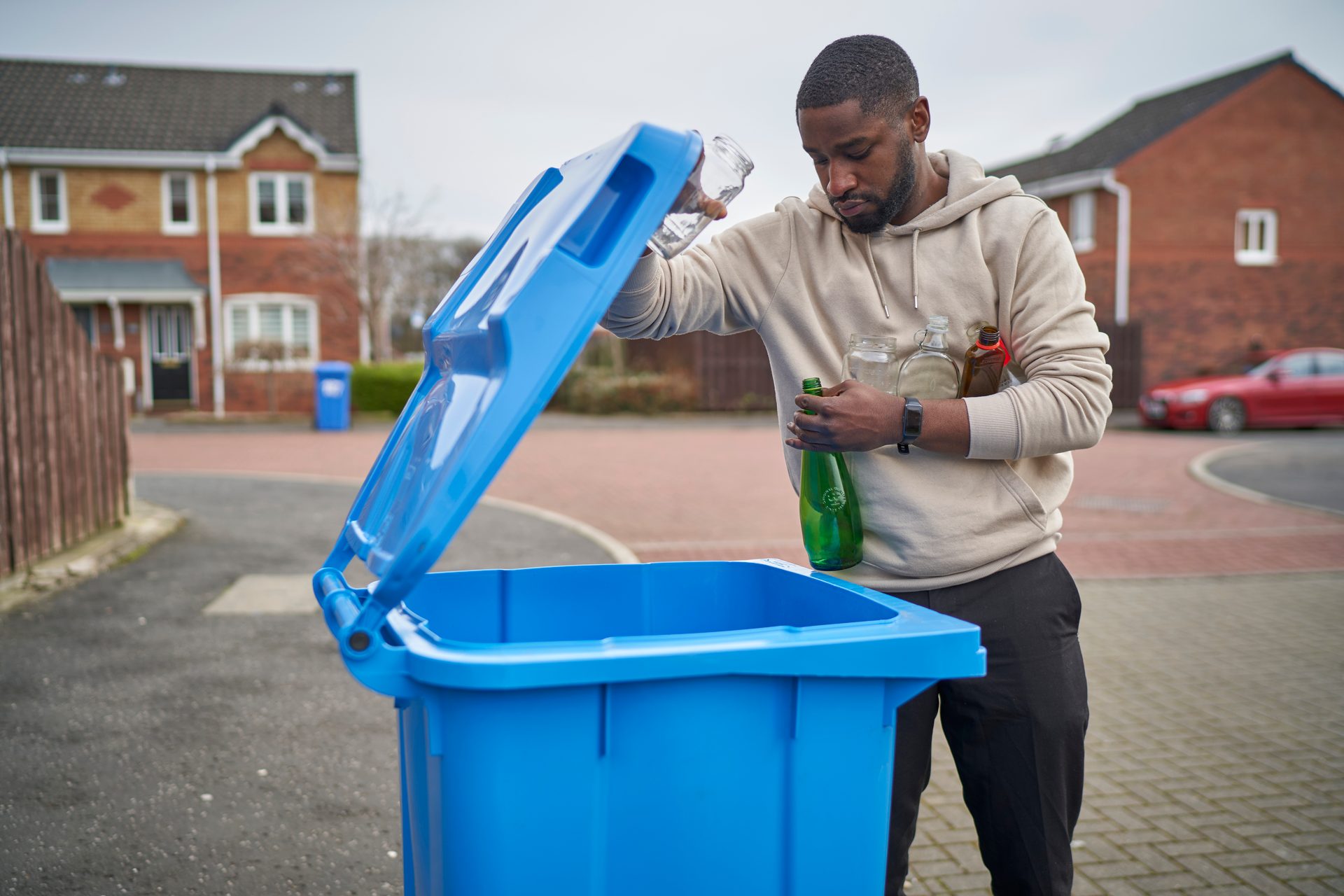
Introduction
Scots are tuning in to the fact that serious measures are required for the climate emergency on our hands
In Scotland, it’s clear the climate emergency has penetrated mainstream public consciousness at a deeper and meaningful level. People in Scotland are engaging with sustainability and climate matters and as a result, they claim they’re making efforts to take action.
People in Scotland's concerns' are manifesting as widespread concern for the natural environment, an acute awareness of their own contribution and thoughts on the long-term impact.
Is the tide finally turning on attitudes towards the climate emergency?
Acknowledgement we all need to do our bit to fight climate change
An overwhelming majority of people are worried enough to acknowledge the need for more regulatory action to force change. Despite the many financial constraints on people in Scotland, we see lower than expected levels of cynicism towards Government intervention that extends into taxation and a recognition that change requires tough measures sometimes.
Past research informs us that the public has tended to expect government and businesses to take the lead. Many clearly still do, but attitudes have softened, with more people feeling a shared sense of responsibility.
It’s time for serious measures
Shared responsibility extends into people’s behaviours at home. When asked what changes people had made over the last 12 months, we see clear indications people in Scotland have made changes both within the home and beyond. Some key examples being as follows:


How far are people prepared to go to help with the climate emergency?



72% Recycle
65% Reduce
45% Reuse
Behaviours in Scotland ranked in order of commonality (based on people in Scotland doing these ‘most of the time’ or ‘always’)

Life gets in the way
It’s not a rejection of being more green and sustainable, it’s just people in Scotland are often too busy, not confident or not organised enough to be engaging consistently in sustainable behaviours.
People also said not having access to recycling services or access to a vehicle for recycling drop offs limits them doing more. When it comes to reducing food waste, a lack of confidence in cooking deters people from thrifty behaviours (1 in 10 that were not reducing their food waste said that they were unsure how to reduce their food waste).
Age and focus plays a role
The extent of lifestyle barriers is evident in behavioural contrasts with the older parts of the population. Perhaps due to retirement and fewer demands on their lives, over 65s are significantly less likely to say that they are too busy or too hassled to do the right thing.
It may also be a question of focus. Interestingly, our data shows that what you take responsibility for at home makes a difference to your outlook and your behaviour. Those who do the grocery shop, food preparation, or take responsibility for waste disposal in the home, are much better at engaging in positive behaviours.
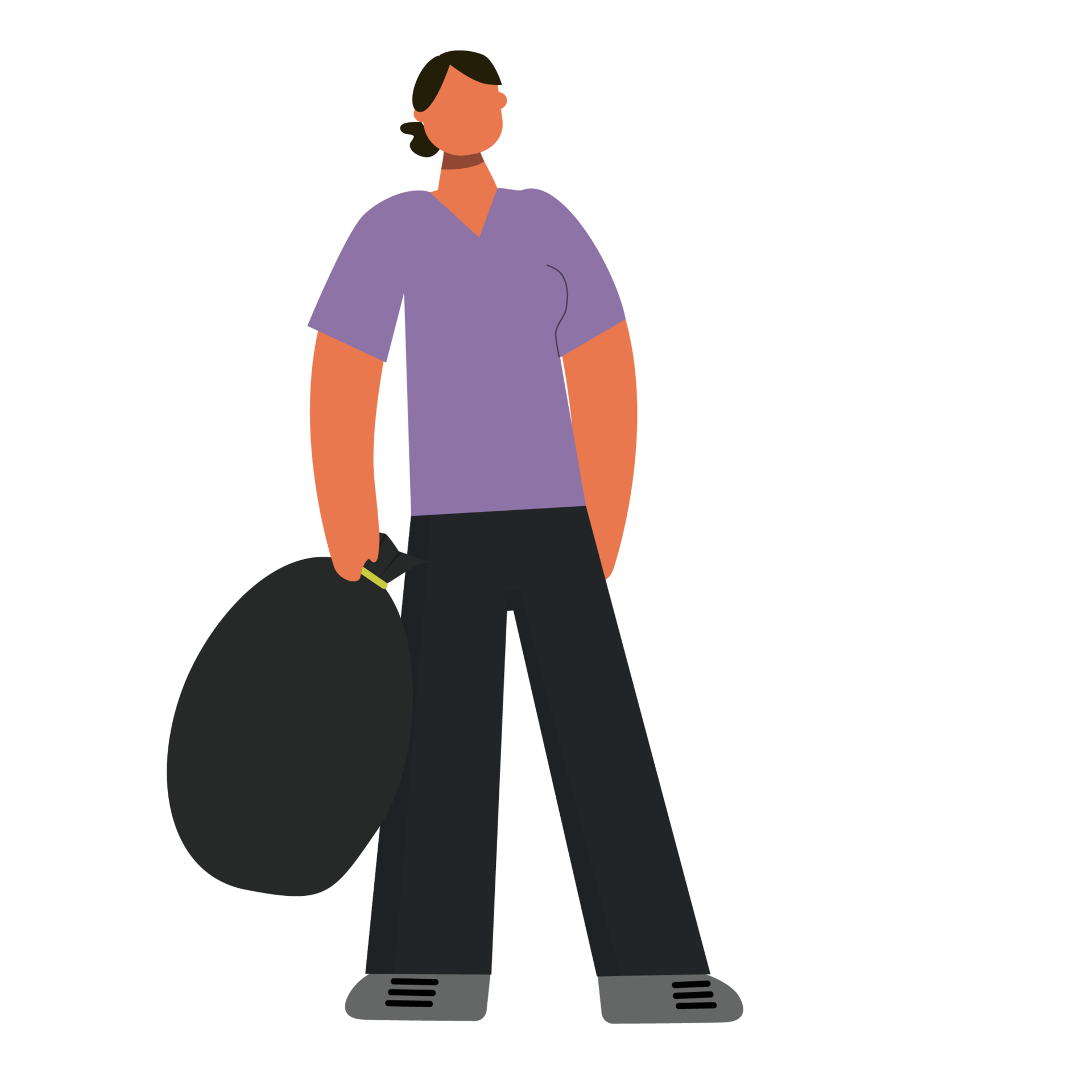
Does attitude make a difference?
In short, yes. We categorised people in Scotland on the basis of what we would define as a more existential concern for the environment and climate change, and we found that just over 6 in 10 people in Scotland could be classed as ‘concerned’ and nearly 4 in 10 as ‘not concerned’.
We found that the more concerned people in Scotland are about the natural environment and climate change, the more they’re likely to do.
The need to get the public engaged in a wider variety of sustainable behaviours
Regardless of concern, our survey has highlighted how we need to put effort into expanding the public’s repertoire of sustainable behaviours beyond the most obvious areas. Even amongst the most concerned, it was interesting to note that people tended to recycle, and less reduce and reuse.
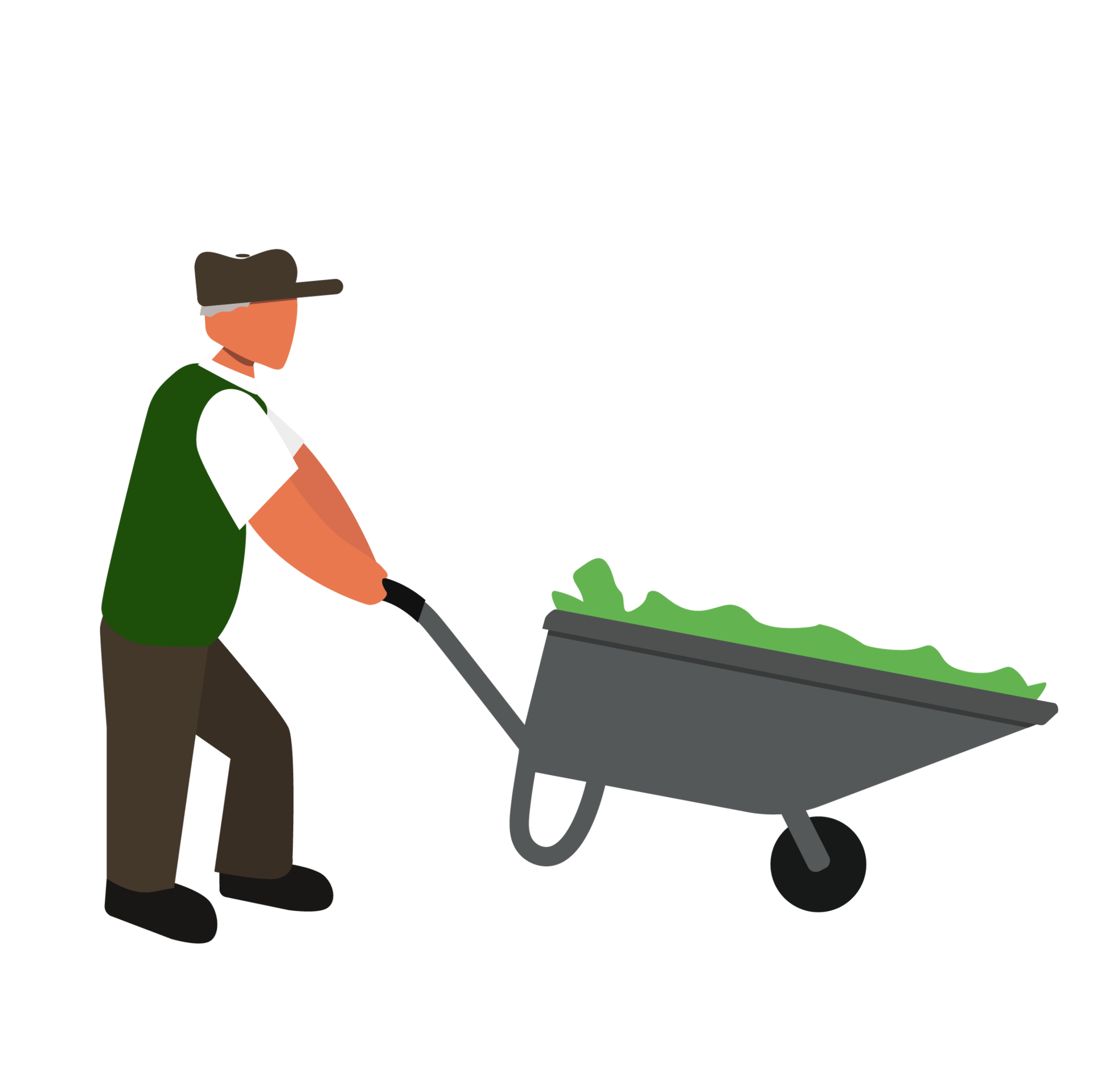
Need to get people in Scotland to think reuse, not rebuy
Reuse is where we’re seeing the lowest uptake, which suggests that a lack of knowledge, or association, needs to be addressed around why these are useful behaviours for combating climate change.
- Using refillable cups and packaging
- Travelling less
- Repairing clothes
- Buying better quality/ more durable, rather than the cheapest item available
- Selling on unwanted items
- Buying second hand, rather than new
- Renting or borrowing, rather than buy your own
The least common behaviours reported by people in Scotland (based on ‘most of the time’ or ‘always’)
Some things are not up for change
Despite high levels of concern for the environment, there are some things people are less willing to compromise on. People do not want to forgo travel and the latest gadgets, two big carbon generating aspects of life.
- Only 37% of people in Scotland said that they tried to travel less due to their concerns about the environment, rising only to 47% amongst those we classed as ‘concerned’.
- With technology moving at such a pace, it might be hard to dissuade people from buying the latest gadgets: 3 in 4 of the population say they ‘prefer new’ when asked about not repairing or reusing electrical items and 23% say that they prefer to buy the latest gadgets.

The paradox of plastic in our lives
The data shows selective behaviours around plastics. Due to regulatory changes, media pressure and influencers like David Attenborough, we have reduced our plastic bag and plastic water bottle use. But there are clear signs people are doing less to reduce use and purchase of plastic in other areas of our lives.





91% take reusable bags to the shops
68% taking reusable bottles with us when out and about
48% using other refillable cups or packaging on the go
55% buying non-packaged fruit and vegetables
48% buying goods with less packaging
Financial factors are what is really making the difference
The cost-of-living crisis has exposed the extent to which financial drivers are key to driving action. Personal financial considerations have the power to overcome attitudinal and practical barriers.
The reality of being on a tighter budget has had the most impact compared to other claimed influences on behaviour over the past year (2021 – 2022). With people in Scotland feeling the pinch, this has manifested in climate positive, reduction of food waste and ‘making do’ rather than buying new. Interestingly, this is more evident amongst women – consistent with findings from The Mood of the Nation research (The Union, 2022).

Powerful cultural forces have a hand too
News coverage, documentaries and social media feature heavily as sources of influence for changing their behaviour. Getting people talking about climate change is critical as discussing issues with other people has a powerful role in motivating behaviour change irrespective of age, gender, or socioeconomic background.
Social media is a strong channel for inspiring Gen Z and younger Millennials (aged 16-34); and they are correspondingly also much more likely to be influenced by celebrities and social influencers.
Thrift is the new cool. And reuse is the new social boost
Money constraints means people are looking to save money. This is a huge opportunity for a shift to climate friendly behaviours and to challenge our consumerist mindset. We are doing more to ‘make do’ with what we’ve got, rather than buying new. Clothing, books and furniture are the most common items that are bought or used second hand.

58% of people in Scotland currently buy or have second hand goods for everyday use
How money concerns are driving change amongst all, irrespective of age or background
- 74% say that sustainable products being the same price would persuade them to change their habits
- 56% are buying more second hand
- 33% have bought more second hand over the last 12 months
- 49% are ‘making do’ due to cost concerns
- 89% of those who don’t currently buy second hand concede that it is a good way to save money
- 62% are only buying new items if they ‘have to’ due to affordability
The concept of the circular economy is not on people’s radars but is appealing to them
Most people in Scotland do not know this concept yet, with only 1 in 4 who say they’ve heard of it.
The opportunity is to improve understanding and help people connect the separate eco dots to form a more coherent picture. And to help people to go beyond recycling, to more reduce and reuse behaviours.
The good news?
Transitioning people in Scotland to this mindset is very doable. Broadly people recognise the need for changes. They are already doing a lot to help. And we can see evidence in the data of circular economy behaviours already around clothing and electrical items. We need to appeal to commonsense and shared values, to embed the notion of ‘circular’ habits in the interests of good financial sense and the environment.

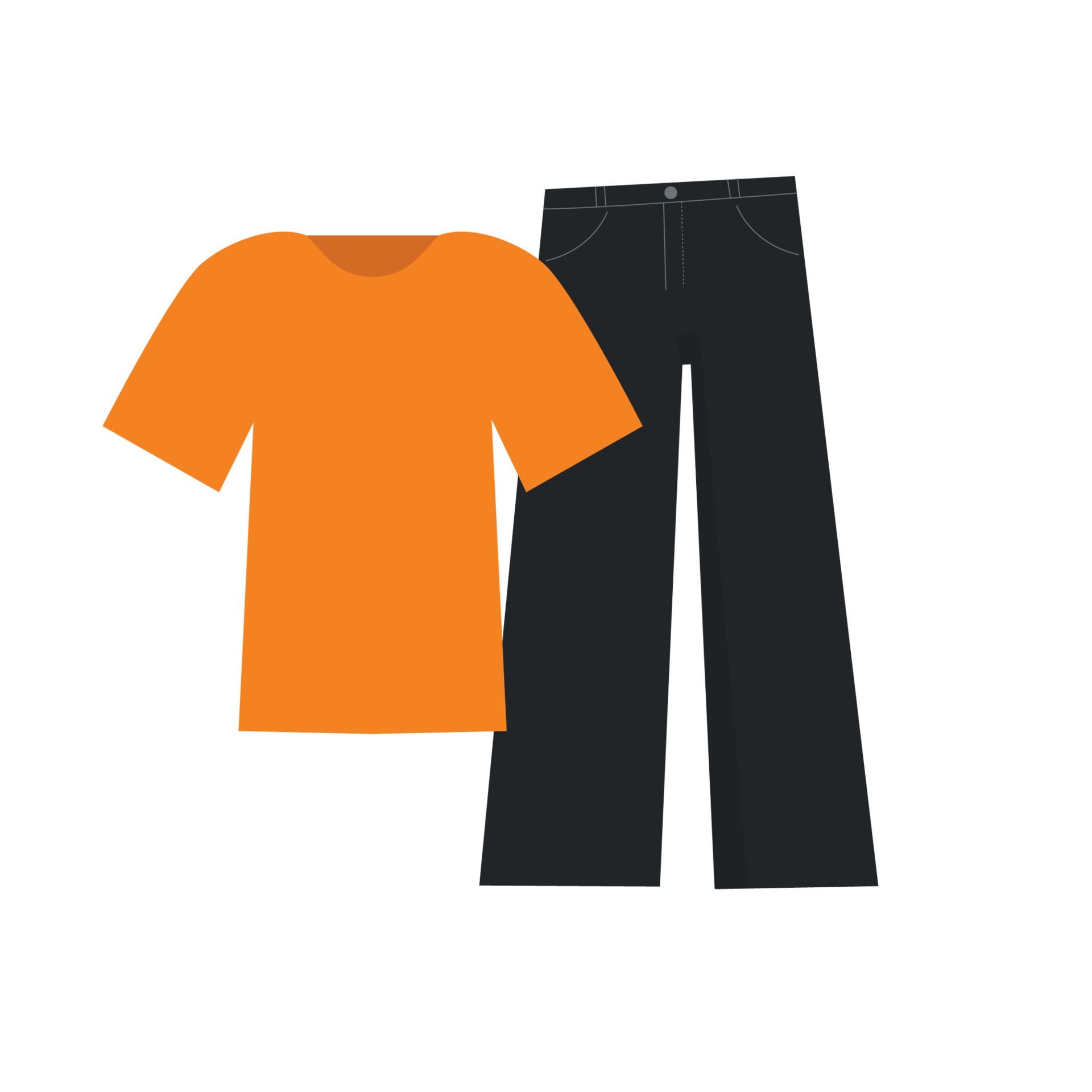





86% get a lot of use out of clothes that they buy
82% buy electrical goods that last a long time
73% buy clothes that will last a long time
66% donate old clothes to charity or pass them onto friends or family
63% sell or give away electrical items that still have life in them
59% have electrical items repaired instead of thrown away
The second hand goods that people buy or use
- 84% prefer to have things ‘right there when they need it’ rather than rent or borrow
- 77% prefer to buy new electrical items
- 56% say it’s too much hassle to recycle, reuse or repair electrical goods
- 47% who are not into clothing reuse don’t like the thought of wearing clothes that someone else has worn
- Only 27% are regularly shopping around for second hand
- Only 20% currently rent or borrow, rather than buying
- 16% who are not into clothing reuse like to buy the latest fashion
There are entrenched barriers – mainly around reuse and the desire to buy new - however, which underlines how we still have a long way to go to encourage a wider set of sustainable behaviours.
With the extent of evident barriers, the nagging question is that when financial pressures on households subside, will we see a widespread return to our old consumerist habits?
So where do we go from here?
Firstly, recognise that many years of environmental messaging (from a variety of sources) to the public is working. People are aware, care and are taking steps to tackle the climate emergency.
Secondly, to acknowledge that driving mass and consistent behaviour change is hard and takes time. We need to embed more frequent behaviours, around reduce and reuse amongst more people in Scotland.
There is clearly no perfect formula when it comes to driving behaviour change. But here are our learnings from the research:
Lean in to financial considerations:
Environmental concern is not enough to compel deeper, widespread action.
People are open to more regulatory intervention:
It has a powerful role to play as seen through high take up of behaviour on plastic bag reuse.
Never stop educating:
Sustainability is a complicated subject. We need to get people to think beyond the basics e.g. recycling and inspire even higher levels of change and sustained action, to broaden people in Scotland daily repertoire of climate friendly behaviours.
Appeal to emotions:
How that information is delivered and in what way it is delivered is key. The fact that news coverage and documentaries feature heavily as a source of influence on behaviour change highlights the power of stories as well as the impact made when something achieves high profile coverage.
Drive discussion and conversation:
The social and cultural context is key to converting behaviours into actual lifestyle changes and habits. Discussion with peers and contacts – whether real or virtual - influences behaviour, irrespective of age or background. The impact of social media, celebrities and influencers on Gen Z and younger Millennials highlights the importance of reaching people through the right channels.
Timing is of the essence:
Now is a good time to promote the concept of the circular economy whilst messages around reuse and reducing waste is more likely to have resonance.
Start with the easy wins:
Even amongst the least engaged, there are areas of behaviour where we can start chipping away at the ‘easy wins’ by speaking to financial benefits and commonsensical values around behaviours where barriers are lowest. With more challenging areas such as travel and gadgets, we may be able to make a plea to smaller scale changes in the spirit of ‘everyone doing their bit’.
